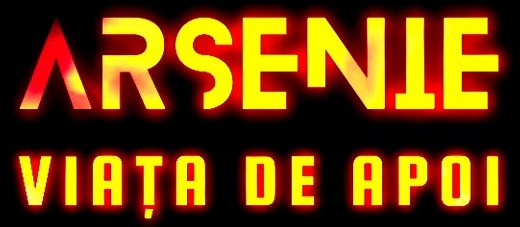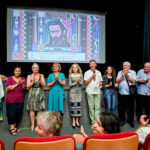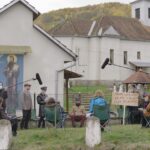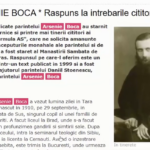Chronicle of an Exciting Summer or Some of the Things We Forgot about Cinema-verité
- November 9, 2023
Read the whole article on Films in Frame:
I revisited Rouch and Morin’s film (at the invitation of the After x Image visual culture festival) at the end of this summer, one that was – for me – charged by the impressions and emotions brought on by my discussions with the audience after the screenings of “Arsenie. An Amazing Afterlife.”
I was struck by how topical the issues raised by the 1960 film are today, in 2023, especially those concerning the relationship between film and truth. I’d like to talk a little about the echoes of these questions in the debate surrounding “Arsenie…”. (And by this, I do not mean to shelter myself from criticism by hiding under the vast shadow of prestige that is cast by Rouch and Morin’s “Chronicle…”, nor am I in any way suggesting that my film could have the same value.) Some of the thoughts transcribed here were formulated during the discussion that I had after the screening of Rouch and Morin’s “Chronicle…” with Andreea Chiper (whom I would like to thank, on this occasion).
With regards to “Arsenie. An Amazing Afterlife”, I often heard the question “Still, what is the genre of this film?”. That is because the film includes observational sequences (in the bus, or in our stops along the way), interview-style conversations with the protagonists, readings of documents, and moments of group debates (let’s say, in a talk-show style format), but also reenactments or performative scenes. It’s fair that the need to frame a film within a genre is always conditioned on the cinema market, and that most productions can, indeed, be labeled according to one. The genre tag is permanently present in the marketing of films across various platforms. Beyond this marketing strategy, which makes the audience’s choices easier, in the case of hybrid documentaries the story is more complicated because hybridization, the notion of an “uncertain genre”, seems to breach the tacit trust that exists between spectator and filmmaker. (To put things on a lighter note, the best definition of “Arsenie’s…” genre came from a spectator who saw the film in Bucharest, who proposed the term bocumentary – stemming from the priest’s last name, Boca – instead of mockumentary.)
I believe that, as long as the spectator can discern the key to each sequence, almost anything is permissible. If the film exposes its artifice and method, if it clearly states what is a document – a quote from archives or the media – and what is observation or dramatization, I don’t see the mixing of genres as a problem. That’s why I’ve even included the names of the officers, informants, or parishioners who wrote those documents in the film, along with the sources of the press materials.
At the film’s screening at Ceau, Cinema! In Timișoara, a lady asked me whether the film is a documentary or not. Because, if it were to be a documentary, the framing would act as a guarantee towards the fact that the things presented in the film are objective truths, which she, as a spectator, would be willing to accept without any further questioning. But, since my film is neither a documentary nor a fiction film, she didn’t know what to rely on. The desire to believe without any sort of doubt… In fact, in the case of said lady, the trust in the film was mined by her fundamental disagreement with my position and that of the film. But also by the difficulty to tell apart, using her judgment, what is information and what is interpretation. This is where the pretension of objectivity comes in, which always floats above the head of documentary cinema. I think it’s more just to transparently explain one’s position (a subjective one, like in the case of anybody else) and then the spectator may then evaluate the truth for themselves. But this is not an easy feat. It implies constant critical efforts and freedom of thought. I prefer the notion of balance to that of objectivity. Balance, and the honesty to expose oneself and to expose the other protagonists. Lately, I’ve been preoccupied with the sensation that we are living in an era of total suspicion – a suspicion that is first of all directed towards the authorities, towards our close ones and their hidden agenda, towards the image, towards science, and so on. This is where the need for objectivity arises. Simultaneously, our era is also one of complete credulity – credulity towards conspiracies of all sorts, towards counterfeit images, towards false authorities, and so on, once more. For example, yet another spectator, this time in the Romanian town of Botoșani, told me that he is certain of the fact that the photos of Arsenie Boca dressed in civilian clothing are fake because they are black and white (even though they’re taken in the sixties, and there is no rational reason whatsoever to doubt their authenticity). How can one re-establish trust?
Read the rest of the article on Films in Frame.










